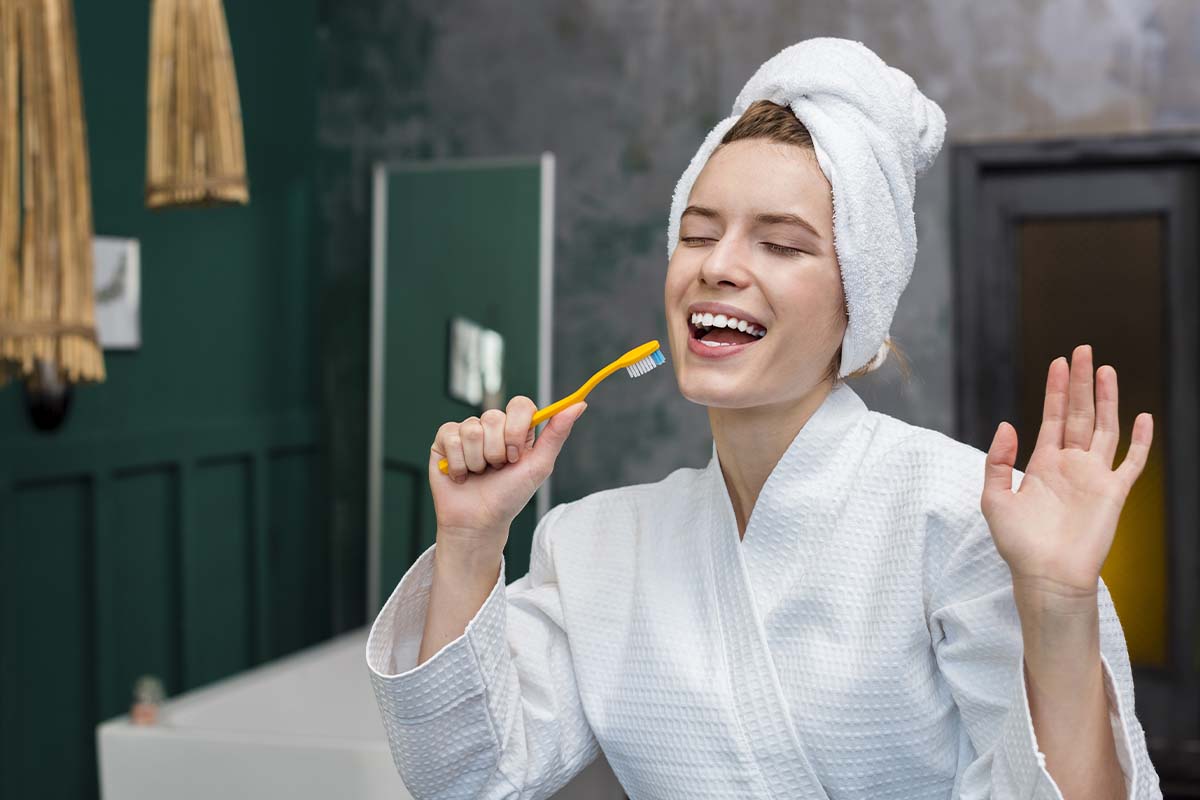Benefits of Brushing Teeth
Brushing teeth goes beyond achieving a sparkling smile; it plays a crucial role in preventing cavities, improving gum health, and ensuring fresh breath. When done consistently, it forms a robust defense against common dental problems.
Establishing a Routine
Creating a habit involves setting a specific time for brushing, choosing the right tools, and making the experience comfortable. By integrating brushing into your daily routine, it becomes as natural as any other essential activity.
Making It a Family Affair
Encouraging your family, especially children, to adopt a regular brushing routine is vital. Establishing family dental health goals fosters a sense of shared responsibility and cultivates a positive attitude toward oral hygiene.
Overcoming Challenges
Addressing challenges such as dental anxiety, time constraints, and finding the right brushing technique is crucial. By acknowledging and tackling these obstacles, the path to a consistent brushing habit becomes clearer.
The Science Behind Brushing
Understanding the science behind brushing, including the impact of plaque, the role of fluoride, and how it prevents tooth decay, empowers individuals to appreciate the significance of this daily ritual.
Incorporating Technology
The choice between electric and manual toothbrushes, utilizing apps to track brushing habits, and exploring smart toothbrush features add a modern twist to an age-old practice, making it more engaging and effective.
Tips for a Thorough Brushing
Ensuring a thorough brushing involves paying attention to the duration, technique, and reaching every corner of your mouth. These simple yet effective tips contribute to a more comprehensive dental care routine.
Common Mistakes to Avoid
Avoiding common mistakes, such as brushing too hard, neglecting the tongue and gums, and using an old toothbrush, is essential in maintaining the effectiveness of your brushing routine.
Tracking Progress
Keeping a dental journal to monitor your brushing habits and scheduling regular dental check-ups are effective ways to track progress and address any emerging issues promptly.
Rewards and Motivation
Celebrating milestones, offering incentives for children, and building a positive association with brushing create a motivating environment that enhances the likelihood of forming a lasting habit.
Natural Alternatives
Exploring natural alternatives like oil pulling, herbal toothpaste, and charcoal toothbrushing provides options for those looking to incorporate more organic elements into their dental care routine.
Cultural Perspectives on Oral Hygiene
Examining historical dental practices and modern cultural variations provides insight into how different societies approach oral hygiene, offering diverse perspectives on the significance of maintaining healthy teeth.
Environmental Impact of Dental Care
Considering the environmental impact of dental care involves exploring eco-friendly toothbrush options and sustainable toothpaste alternatives, contributing to a more planet-friendly oral hygiene routine.
Conclusion
In conclusion, making a habit of brushing teeth is a small but powerful step toward lifelong oral health. By understanding the benefits, overcoming challenges, and embracing modern techniques, individuals can ensure that this simple routine becomes an integral part of their daily lives.
FAQs
-
How often should I brush my teeth?
- Ideally, brush your teeth at least twice a day, in the morning and before bedtime.
-
Is an electric toothbrush better than a manual one?
- Both are effective, but some find electric toothbrushes more convenient for thorough cleaning.
-
Can I use natural alternatives instead of regular toothpaste?
- Natural alternatives like herbal toothpaste can be used, but ensure they contain fluoride for effective cavity prevention.
-
What should I do if my child refuses to brush their teeth?
- Make brushing fun, use flavored toothpaste, and consider a reward system to motivate them.
-
How long should I brush my teeth each time?
- Aim for a minimum of two minutes to ensure thorough cleaning of all surfaces.


